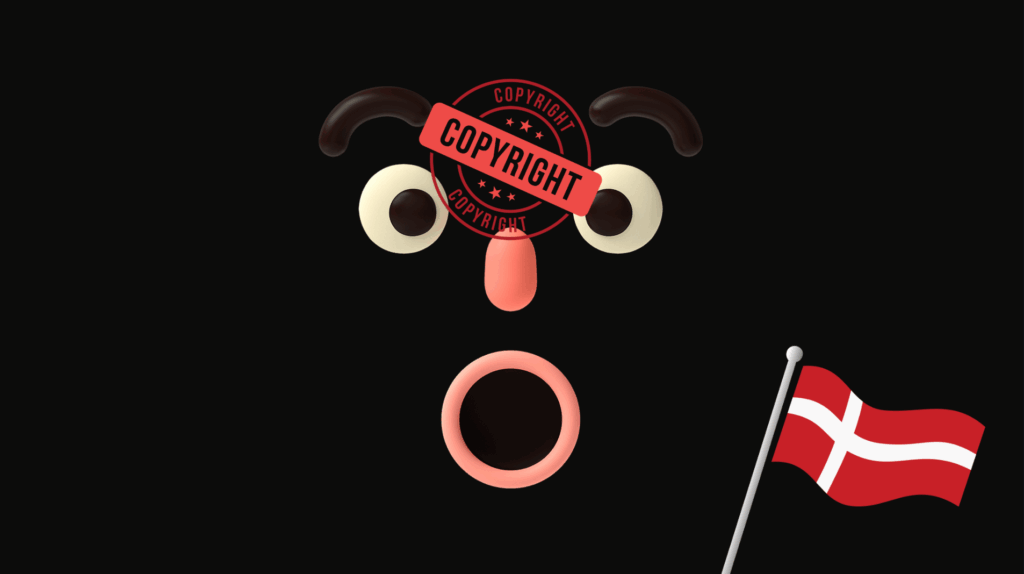Denmark Pioneers Revolutionary Copyright Protection Against AI Deepfakes

In a groundbreaking move that could reshape how the world approaches artificial intelligence regulation, Denmark is poised to become the first European nation to grant its citizens copyright protection over their own faces, voices, and bodies. The proposed legislation, spearheaded by Culture Minister Jakob Engel-Schmidt, represents a novel approach to combating the growing threat of AI-generated deepfakes through copyright law rather than traditional criminal or privacy statutes[1].
A Legislative First in Europe
The Danish government announced in June 2025 that it would amend the country’s copyright law to ensure that every person has legal ownership of their physical appearance and voice[2]. This unprecedented approach has secured broad cross-party support, with backing from nine out of ten members of parliament, signaling rare political consensus on an issue that has vexed lawmakers worldwide[3].
“In the bill we agree and are sending an unequivocal message that everybody has the right to their own body, their own voice and their own facial features, which is apparently not how the current law is protecting people against generative AI,” Engel-Schmidt told The Guardian[4].
The proposed amendment defines a deepfake as “a very realistic digital representation of a person, including their appearance and voice,” establishing clear legal parameters for what constitutes unauthorized digital reproduction[5]. The Danish Department of Culture plans to submit the proposal for consultation before the summer recess, with the amendment expected to be formally introduced in autumn 2025 and take effect before the end of the year[6].
Addressing the Deepfake Crisis
The urgency behind Denmark’s legislative initiative becomes clear when examining the explosive growth of deepfake technology. Projections indicate that approximately 8 million deepfakes will be shared in 2025, representing a staggering increase from just 500,000 in 2023[7]. This exponential growth has been accompanied by increasingly sophisticated AI tools that make it easier than ever to create convincing fake videos, images, and audio recordings with minimal technical expertise.
The problem has affected high-profile figures across various sectors. Canadian singer Celine Dion warned fans in March 2025 about AI-generated content featuring her voice and likeness circulating online[8]. Similarly, more than 200 musicians, including Billie Eilish, Katy Perry, and the Jonas Brothers, signed an open letter in April 2024 speaking out against AI-related threats in the music industry[9].
Engel-Schmidt emphasized the personal nature of this digital violation, stating, “Human beings can be run through, if you would have it, a digital copy machine and misused for all sorts of purposes and I’m not willing to accept that”[10]. His sentiment reflects growing concerns that current legal frameworks are inadequate to address the rapid advancement of AI technology.
Key Provisions and Protections
Under the proposed legislation, Danish citizens would gain the legal right to demand that online platforms remove deepfake content featuring their likeness if it was shared without their consent[11]. The law would also cover “realistic, digitally generated imitations” of an artist’s performance, providing specific protections for creative professionals who have been particularly vulnerable to AI impersonation [12].
Importantly, the legislation includes carefully crafted exceptions to protect freedom of expression. Parodies and satirical content would remain permissible under the new law, ensuring that legitimate forms of commentary and humor are not inadvertently criminalized[13]. This balance reflects Denmark’s commitment to maintaining its strong tradition of free speech while addressing genuine harms caused by malicious deepfake use.
The enforcement mechanism includes significant penalties for non-compliance. Tech platforms that fail to respond appropriately to takedown requests could face “severe fines,” with the possibility of European Commission intervention if companies refuse to cooperate[14]. Engel-Schmidt expressed confidence that these consequences would motivate platform compliance, stating, “That is why I believe the tech platforms will take this very seriously indeed”[15].
International Context and Precedents
Denmark’s copyright-based approach represents a departure from regulatory strategies adopted elsewhere. The United States passed the Take It Down Act in May 2025, which criminalizes nonconsensual deepfake imagery and mandates that social media companies remove such content within 48 hours of notification[16]. However, this legislation focuses primarily on criminal penalties rather than establishing property rights over personal likeness.
The European Union’s AI Act, which began taking effect in 2024, requires that all AI-generated content be clearly labeled as such and includes specific provisions regarding deepfakes[17]. However, Denmark’s approach goes further by creating individual copyright ownership over personal characteristics, potentially providing stronger legal recourse for victims.
Professor Athina Karatzogianni of the University of Leicester contextualized Denmark’s initiative within the broader global response to AI challenges, noting that the proposal is “one of hundreds of policy initiatives around the world looking to reduce the possible harms associated with the misuse of generative AI”[18]. She emphasized that deepfakes pose both individual and societal risks, as they “can both harm individual rights and also have sociopolitical impacts, because they undermine the values that are fundamental to a democracy, such as equality and transparency”[19].
Implications for the Digital Future
The Danish legislation could have far-reaching implications beyond the country’s borders. Engel-Schmidt has indicated that Denmark plans to use its upcoming EU presidency in 2025 to promote similar protections across Europe, potentially creating a continental standard for deepfake regulation[20]. This diplomatic initiative could establish Denmark as a leader in AI governance and influence regulatory approaches worldwide.
The copyright framework offers several advantages over alternative regulatory approaches. By treating personal likeness as intellectual property, the law provides clear legal standing for individuals to pursue both takedown requests and financial compensation. This economic incentive could prove more effective than purely criminal approaches in deterring malicious deepfake creation.
However, the legislation also raises complex questions about the boundaries of copyright protection and its interaction with existing intellectual property frameworks. Legal scholars will likely debate whether extending copyright to inherent human characteristics represents a natural evolution of intellectual property law or a fundamental departure from traditional copyright principles.
Challenges and Considerations
Despite its innovative approach, Denmark’s legislation faces several implementation challenges. The global nature of digital platforms means that content blocked in Denmark might remain accessible elsewhere, potentially limiting the law’s practical effectiveness[21]. Additionally, the rapid evolution of AI technology may require frequent updates to legal definitions and enforcement mechanisms.
The balance between protecting individual rights and preserving freedom of expression will require careful judicial interpretation. While the legislation explicitly protects parody and satire, courts will need to develop nuanced approaches to distinguishing between legitimate commentary and harmful impersonation.
Denmark’s pioneering copyright approach to deepfake regulation represents a significant milestone in the global effort to address AI-generated misinformation and digital identity theft. By granting individuals ownership rights over their own physical characteristics, the legislation provides a novel legal framework that could influence regulatory approaches worldwide.
As Culture Minister Engel-Schmidt noted, “We are champions of freedom of speech, we would like everyone to be heard, but we also believe that human beings have the right to say yes and no to them being used by generative AI”[22]. This principle encapsulates the delicate balance that democracies must strike as they navigate the opportunities and challenges presented by artificial intelligence.
The success of Denmark’s approach will likely depend on effective implementation, international cooperation, and the ability to adapt to rapidly evolving technology. As the legislation moves toward final passage, it will be closely watched by policymakers, legal experts, and technology companies worldwide as a potential model for protecting human dignity in the age of artificial intelligence.
References
[1] The Guardian, “Denmark to tackle deepfakes by giving people copyright to their own features,” June 27, 2025, https://www.theguardian.com/technology/2025/jun/27/deepfakes-denmark-copyright-law-artificial-intelligence
[2] Ibid.
[3] Ibid.
[4] Ibid.
[5] Ibid.
[6] Ibid.
[7] European Parliament Think Tank, “Children and deepfakes,” July 4, 2025, https://epthinktank.eu/2025/07/04/children-and-deepfakes/
[8] CNN, “Denmark plans to thwart deepfakers by giving everyone copyright over their own features,” June 27, 2025, https://www.cnn.com/2025/06/27/business/denmark-ai-law-scli-intl
[9] Ibid.
[10] Ibid.
[11] The Guardian, “Denmark to tackle deepfakes by giving people copyright to their own features,” June 27, 2025
[12] Ibid.
[13] Ibid.
[14] Ibid.
[15] Ibid.
[16] TIME, “Denmark Seeks to Give People Copyright to Their Own Features in Effort to Combat AI Deepfakes,” June 27, 2025, https://time.com/7298425/ai-deepfakes-denmark-copyright-amendment/
[17] European Parliament, “EU AI Act: first regulation on artificial intelligence,” February 19, 2025, https://www.europarl.europa.eu/topics/en/article/20230601STO93804/eu-ai-act-first-regulation-on-artificial-intelligence
[18] CNN, “Denmark plans to thwart deepfakers by giving everyone copyright over their own features,” June 27, 2025
[19] Ibid.
[20] The Guardian, “Denmark to tackle deepfakes by giving people copyright to their own features,” June 27, 2025
[21] IISTL Blog, “Denmark’s Bold Step: Copyright as a Shield Against Deepfakes,” July 15, 2025, https://iistl.blog/2025/07/15/denmarks-bold-step-copyright-as-a-shield-against-deepfakes/
[22] CNN, “Denmark plans to thwart deepfakers by giving everyone copyright over their own features,” June 27, 2025










